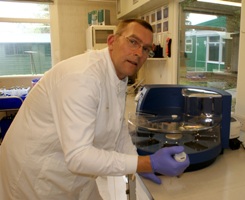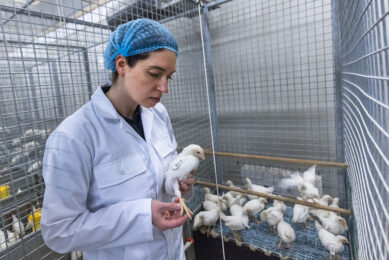Diagnostic testing for poultry industry

A new company, MDT Molecular Diagnostic Testing, has been set up in the UK specifically to provide a sophisticated testing service for veterinary surgeons and the pig and poultry industries.
Based at Craven Arms in Shropshire, England, it uses the polymerase chain reaction method to detect DNA and RNA in bacteria and viruses from a variety of tissues.
“New technology means the tests for organisms causing such diseases as salmonella, mycoplasma, coccidiosis and PRRS are quicker and more specific,” commented technical director, Rob Harrison, who is also MD of SciTech Laboratories that has made a name for itself in the poultry industry.
Most existing culture tests rely on viable bacteria and viruses to enable the target organism to be grown and identified. However, the new tests offered by MDT can detect non-viable (dead) micro-organisms from tissue, throat swabs, blood and faeces. The tests can detect and identify incredibly low numbers of viruses and bacteria which, in previous tests, may not show up at all.
Furthermore, these tests can distinguish between the different groups and strains of bacteria such as Salmonella enteritidis and Salmonella typhimurium or the European versus the North American strain of PRRS in pigs.
In addition to greater diagnostic accuracy, another important advantage of the polymerase chain reaction (PCR) tests is that they can be completed quickly, usually between 24 and 48 hours.
“This can enable treatment for a disease to be started earlier, resulting in a quicker response, with a potential to save producers hundreds if not thousands of pounds,” said Harrison. “It also means test can be conducted on breeding animals for export closer to the despatch date.
“In particular cases, accurate tests could facilitate the production of autogenous vaccines,” he added.
Related links:













